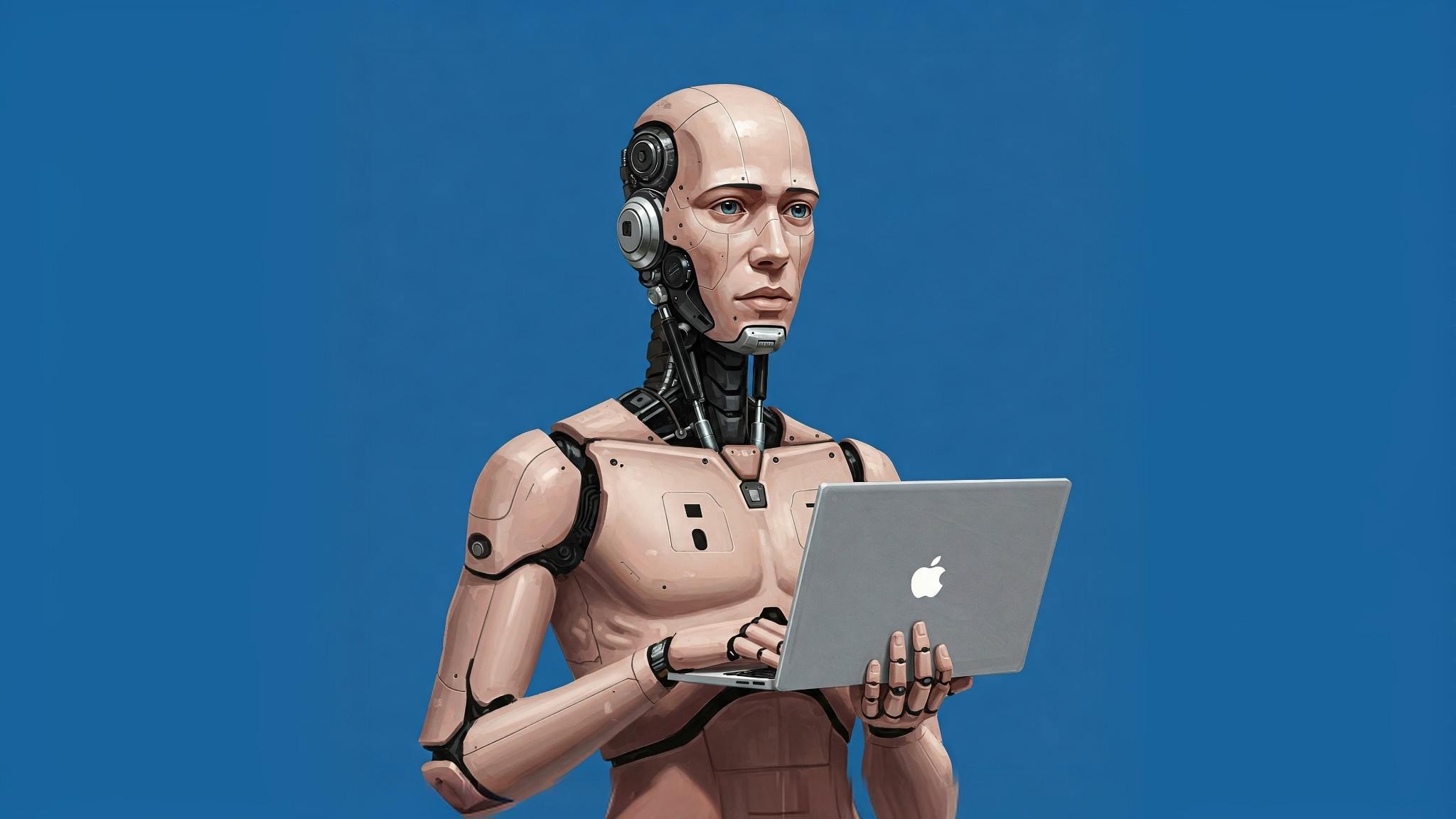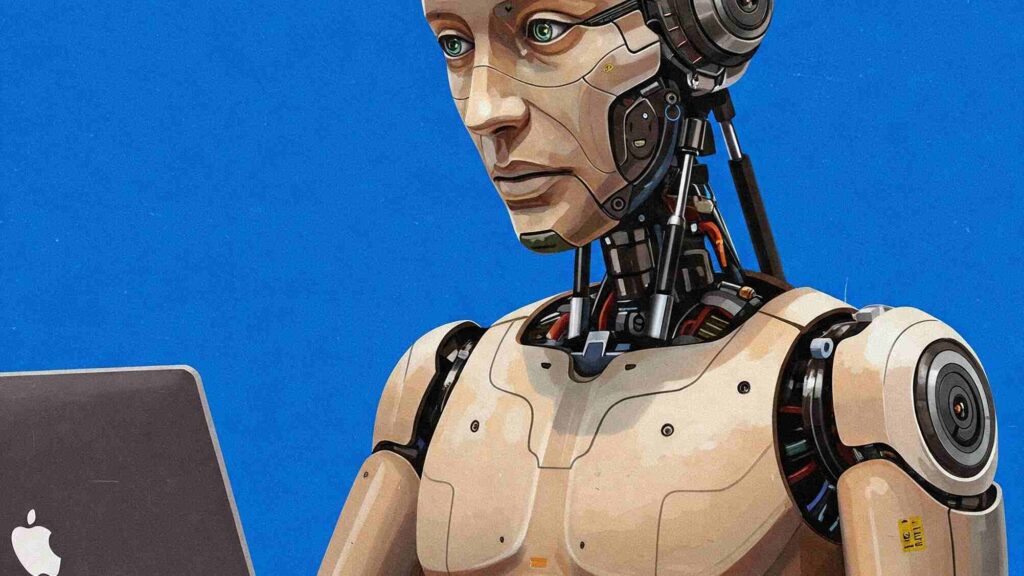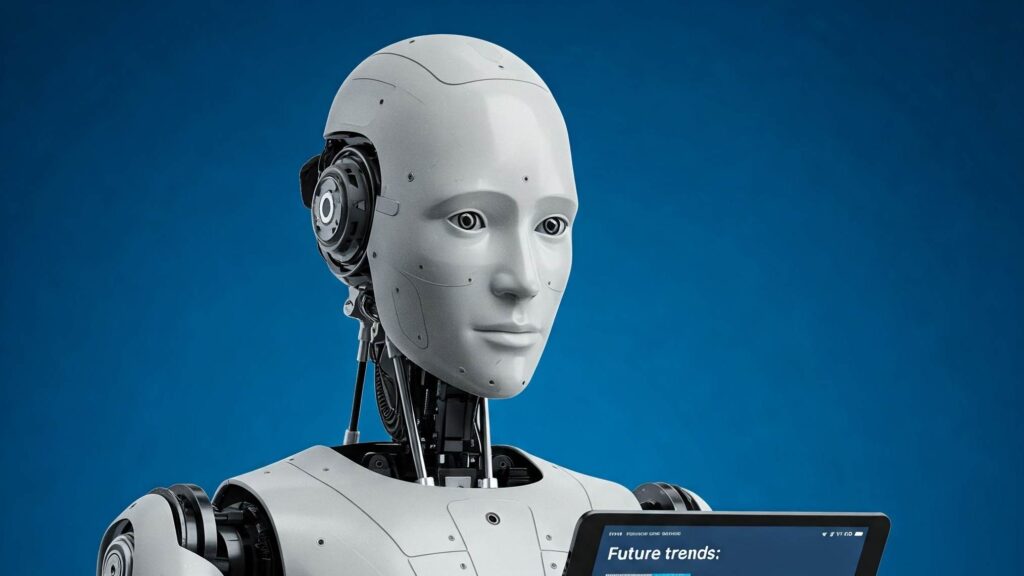How AI is Transforming Digital Marketing: Trends and Top Tools

Digital marketing has changed a lot, and AI is a big reason why. AI in digital marketing isn’t just a great idea anymore. This is a tool that businesses use to:
- Reach customers better
- Make work easier
- Get better results
AI helps create personalized ads and analyzes large amounts of data. It lets marketing professionals work smarter, not harder.
Why does AI for marketers matter? It saves time by handling boring tasks like sending emails or posting on social media. It also makes ads and messages feel special for each customer. Plus, it looks at data to find helpful information, so companies can make smarter choices faster. Whether it’s guessing what’s popular or knowing what customers like, AI gives companies a competitive advantage.
AI is making a difference in many ways. It helps show the right ads to the right people. Also, it improves customer service with bots and even writes content for different audiences. Social media, email campaigns, and websites all work better with AI. It’s because it can study data and act on it quickly.
In this article, we’ll look at how AI for marketing is changing plans, share the best tools you can use, and talk about what’s coming next for this exciting technology.
The Role of AI in Modern Digital Marketing
Digital marketing isn’t what it used to be, and AI is a big reason why. AI for digital marketing is reshaping how companies plan and execute their strategies. Instead of relying on guesswork, marketing professionals now use AI to:
- Analyze data
- Predict customer behavior
- Create more effective campaigns with higher success rates
This shift is making marketing more efficient and effective in the modern web world.
One major way AI helps is through AI tools for marketing automation. These tools handle tasks like sending follow-up emails, segmenting audiences, or updating client profiles without manual effort. This frees up marketing professionals to focus on creative ideas and big-picture goals. AI also improves data analysis. It crunches numbers faster than any human could. It spots patterns that reveal what customers want and how they behave.
The benefits are clear:
- Enhanced personalization. AI tailors content to individual preferences. It makes people feel understood.
- Predictive analytics. It forecasts trends, helping marketing professionals stay ahead of the curve.
- Real-time decision-making. AI adjusts projects on the fly based on live data. It ensures better results.
Beyond automation and analytics, AI boosts engagement. Bots powered by AI provide instant responses. At the same time, recommendation engines suggest products customers are likely to love. AI is combining creativity with data-driven insights.So, AI for marketing is helping companies build stronger connections with their audiences. That way, they can achieve results that were once unimaginable.
AI-Powered Personalization: Enhancing Customer Experience
Personalization is the key to engaging customers. And AI tools for marketers make it easier than ever. These tools analyze user behavior. It includes browsing history, purchase patterns, and even time spent on a webpage. It is all to understand what each person likes. This deep insight lets companies create experiences that feel personal and relevant.
For example, AI can power personalized content recommendations. For example, suggesting articles or videos based on what someone’s already enjoyed. It’s the same technology behind Netflix’s “you might like” suggestions or Spotify’s curated playlists. In marketing, this translates to:
- Emails with product recommendations tailored to a customer's taste.
- Website banners that change based on their interests.
AI also excels at customer segmentation, grouping people with similar behaviors or preferences. This means companies can send targeted ads to specific groups. For example, offering discounts to frequent shoppers or promoting new products to curious browsers. The result? People feel like the brand “gets” them. And it then builds trust and loyalty. AI helps to deliver the right message to the right person at the right time. This way, marketing professionals are creating better experiences that drive engagement and sales.
AI Tools for Social Media Marketing and Advertising
Social media is a crowded space, and standing out takes strategy. That’s where AI tools for social media marketing come in. These tools help marketers plan campaigns, engage audiences, and maximize the impact of every post. By analyzing data like likes, shares, and comments, AI pinpoints what content works and what doesn’t.
AI tools can:
- Schedule posts for the best times to reach audiences.
- Analyze engagement to see which posts spark the most interest.
- Automate interactions, like responding to comments or messages with bots.
For ads, AI takes things further. It helps create ads that resonate by suggesting visuals or captions based on audience preferences. Tools like these also optimize ad performance by adjusting targeting or budgets in real time. For instance, if an ad isn’t getting clicks, AI can tweak it to focus on a different audience segment. With the use of AI for marketing in social media, brands can save time. They cut costs and connect with followers in a more meaningful way. It’s all while boosting their projects’ success.
Best AI Tools for Marketing: Features and Benefits

With so many options out there, finding the best AI tools for marketing can feel overwhelming. These tools cover everything from automation to analytics, helping marketers tackle tasks with ease. Here’s a look at some top picks and how they shine in different areas:
- HubSpot. This one is great for marketing automation. HubSpot uses AI to streamline email campaigns, manage leads, and track customer interactions. Its predictive analytics suggest the best times to reach out to prospects.
- Hootsuite Insights. This one is perfect for social media. This tool analyzes engagement and schedules posts for maximum impact. Its AI also tracks brand sentiment, helping marketers adjust their strategies.
- Newo. This is a leader in chatbots. It uses AI for marketing automation to engage site visitors with personalized conversations. It guides them toward purchases or support.
- MarketMuse. For content creation, it analyzes competitors. And it suggests topics that rank well on search engines. It makes it easier to craft SEO-friendly blogs or articles.
- Adext. Focused on ads, Adext optimizes ad budgets across platforms like Google and Facebook. It uses AI to target audiences with precision.
Each tool has unique strengths. For small companies, HubSpot’s all-in-one platform is a solid start. Larger teams might prefer MarketMuse for content or Adext for ads. By choosing the right AI tools, companies can automate tasks and gain deeper insights. This will help create campaigns that deliver real results.
AI for Marketing Campaigns: Smarter Strategies for Better Results
Running a successful campaign requires both creativity and data-driven insights. That’s where AI for digital marketing campaigns comes in. AI-driven insights help marketers refine strategies, ensuring every dollar spent counts. By analyzing past campaigns, customer behavior, and market trends, AI spots what works and what needs tweaking.
One big advantage is A/B testing. AI can test different versions of an ad or email. For example, changing the headline or call-to-action. And then it can quickly identify the winner. This means marketers don't waste time guessing what resonates. AI also optimizes content by suggesting:
- Images
- Keywords
- Layouts
They all align with audience preferences.
Performance tracking is another area where AI shines. It monitors campaigns in real time. It can flag issues like low click-through rates or suggest adjustments to improve results. For example, if a campaign isn’t hitting its target audience (TA), AI can refine the targeting to focus on a more engaged group. With AI for marketing, campaigns become smarter, more efficient, and better at delivering measurable outcomes. It helps companies achieve their goals faster.
AI in Advertising: Revolutionizing Targeting and ROI Optimization
Advertising is all about reaching the right people, and AI for digital marketing is making that easier than ever. AI tools analyze massive datasets - demographics, interests, online behavior. It is all to target ads with laser precision. This means companies can show ads to people who are most likely to buy. And it reduces wasted spend.
AI for marketing automation also improves bidding strategies. On platforms like Google Ads or Facebook, AI adjusts bids in real time. It helps to get the best value for each click or impression. For example, a certain audience is responding well. Then, AI might allocate more budget there to maximize results. This kind of smart budget allocation ensures companies get a higher return on investment (ROI).
Tools like The Trade Desk or Smartly.io use AI to streamline ad creation and placement. They suggest ad formats, suggest optimized visuals, and even predict which campaigns will perform best. By combining precise targeting with real-time adjustments, AI is transforming advertising into a science. It helps brands reach their audience effectively while keeping costs in check.
Future Trends: How AI Will Continue to Evolve in Marketing

The future of digital marketing is bright, and AI for digital marketing will keep pushing boundaries. Emerging trends show AI becoming even more integrated into everyday strategies. One big area is voice search optimization. As smart speakers like Alexa grow, AI will help marketers create content that ranks for voice queries. For example, conversational phrases people use when speaking.
Another significant trend shaping the future is hyper-personalization. AI is poised to move far beyond offering basic, generalized recommendations. Instead, it will leverage real-time data streams to meticulously tailor every single customer interaction. Imagine receiving marketing emails that dynamically adapt their content based on the specific products or services you've just browsed on a website. This level of individualization will create more engaging and relevant experiences.
Furthermore, the rise of generative AI is rapidly transforming content creation. This powerful technology can now generate a vast array of content, from compelling ad copy and engaging video scripts to even more complex materials, all within seconds. This capability not only saves marketers valuable time and resources, but also acts as a powerful catalyst for sparking creativity and innovation in many aspects of business operations.
But it’s not all smooth sailing. Ethical considerations are growing. Marketers will need to balance personalization with data privacy. They must ensure customers’ information is handled responsibly. Regulations like GDPR are pushing companies to be transparent about data use. And AI must adapt to stay compliant.
Looking ahead, AI tools for marketing will play a bigger role in web agencies. Expect more tools that combine AI with human creativity. It will help teams brainstorm ideas or predict project outcomes. As AI evolves, it will empower marketers to build stronger connections with people. Meanwhile, they will be navigating a complex, data-driven world.
Conclusion: Why AI is Essential for Modern Marketers
The impact of AI in digital marketing is undeniable. AI has become a must-have for companies looking to stay competitive. Its uses range from automating routine tasks to delivering personalized experiences. It’s not just about keeping up with trends. It’s about using tools that make digital marketing faster, smarter, and more effective. Whether crafting targeted ads, analyzing customer data, or optimizing campaigns, AI for marketing is driving results like never before.
For agencies and businesses, ignoring AI isn’t an option. The ability to predict trends, understand audiences, and act on insights in real time gives companies a clear edge. Tools that handle social media marketing, campaign management, or advertising are already proving their worth. And the best AI tools for digital marketing keep getting better. They’re not replacing creativity. They're amplifying it, letting marketers focus on big ideas while AI handles the heavy lifting.
As we look to the future, AI for digital marketing will only grow more essential. It’s a tool that evolves with the industry. It helps companies adapt to changing customer needs and market demands. By embracing AI for marketing campaigns, companies can build strategies that work today and set the stage for long-term success. The message is clear. Integrate AI now, and your digital marketing will thrive in ways you never thought possible.


